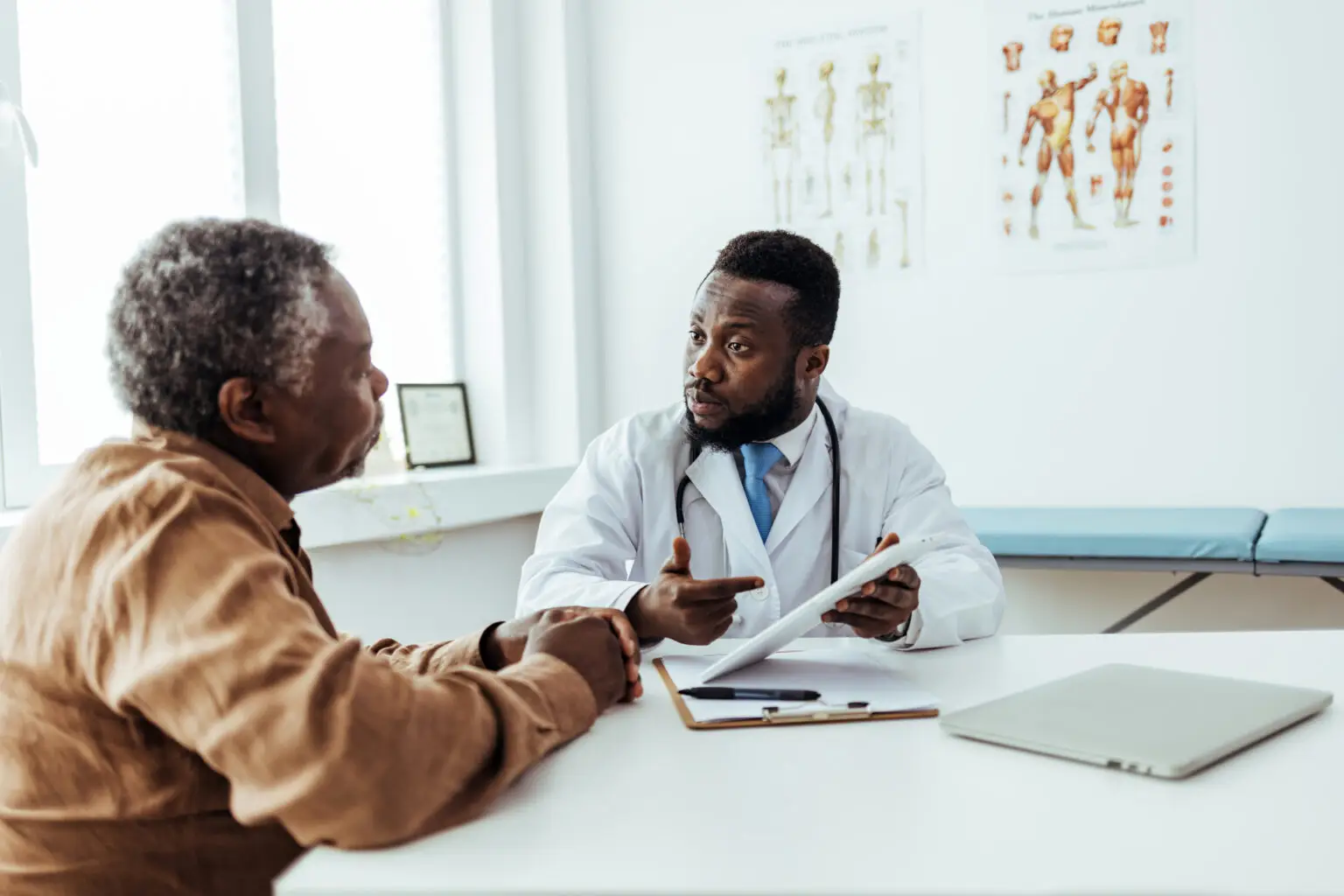When you or a loved one is diagnosed with non-small cell lung cancer (NSCLC), the treatment path that’s in front of you can be overwhelming. Taking the time to understand the implications of a NSCLC diagnosis and navigate your way to informed decisions will be easier to manage once you fully understand how your cancer treatment will affect your day-to-day life. Understanding your NSCLC diagnosis starts with your oncologist. Remember, no lung cancer question is silly, and every concern is important, so don’t ever be afraid to ask your doctor to explain things to you, even if you require an explanation more than once.
The National Cancer Institute (NIH) provides an extensive list of questions to ask your oncologist prior to treatment, but here are 7 starter questions to bring along to your next oncology appointment:
Lung Cancer Questions for your Oncologist
What treatment path is best for my type and stage of NSCLC cancer?
Your cancer treatment will depend on your cancer stage. When your oncologist explains your diagnosis to you, also ask them to illustrate the size of the tumor and if the cancer stage involves your lymph nodes. From there, make sure you understand if the cancer has spread and every point at which it exists in your body. For a reminder of the cancer stages, you can review this matrix from The American Lung Association and then review a high-level explanation of your treatment options here at Outcomes4Me.
What are the risks and benefits of this treatment?
While there are general, documented risks and benefits of your treatment, the experience will differ from patient to patient. Whether you and your oncologist decide on surgery, radiation therapy, chemotherapy, immunotherapy, precision medicine or some combination of these treatments, make sure you ask about how your treatment path might affect your physical and emotional well-being.
The stage of your cancer will also influence your treatment plan. While treatment options for early-stage disease and later-stage disease may be similar, their duration differs. In early stage-disease, you need to prepare yourself for a finite treatment timeline, while later-stage disease will require ongoing treatment. Understanding how long you will need to navigate a treatment and its specific side effects may influence your decision to pursue one option over another.
Additionally, learning to live with chronic or late stage cancer can greatly affect both you and your family, so make sure you ask your oncologist to explain if the benefits outweigh the side effects and ask for recommendations for managing your stress during treatment.
How can I prepare for my treatment and when will it start?
There are plenty of great resources online to prepare you for your treatment, but think about asking your oncologist for things to read as you prepare. Sometimes, we tend to research on our own and let the internet take us to resources that aren’t at all helpful, and might induce additional stress. If you do choose to research on your own, make sure you’re consuming content from evidence-based sources, such as Outcomes4Me.
What kind of side effects should I expect to experience? Can I prevent or treat those side effects?
When going through any type of lung cancer treatment, there’s a possibility you will experience side effects, whether they’re common or rare. Make sure ask questions about what to expect, and let your care team know what you’re experiencing so they can help you manage them properly. The American Cancer Society provides a list of cancer-related side effects that allows you to browse by category or symptom, including but not limited to blood-related problems, bowel and bladder changes, pain, swelling and cognitive problems that make it more difficult to remember things or think clearly. Keeping track of your side effects can help you have more productive conversations with your care providers on managing symptoms. Use the symptom tracking feature in the Outcomes4Me app to track how you’re feeling.
How could this treatment affect my appetite?
During your treatment, your appetite may change. Foods you used to love might not make you feel well, taste as good, or taste like you remember. If your eating habits change, your weight may change, so keep your doctor informed and ask about any specific foods or supplements to avoid as well as what to eat to maintain a healthy diet that supports your treatment goals.
What are the latest treatment options and clinical trials for my specific diagnosis?
A lung cancer question to ask your oncologist is about genetic testing, biomarker testing, and clinical trials. Before your appointment, take a look at the free Outcomes4Me app for any FDA-approved treatment options that may be appropriate for your specific diagnosis and health history. All of the options listed on our app are integrated with the latest NCCN Guidelines®, so you can feel confident that any potential treatments you choose to discuss with your oncologist comply with those guidelines. Additionally, ask your doctor for help evaluating any appropriate clinical trials.
Who can I talk to for support during my treatment?
The American Cancer Society provides a list of support programs that can be tailored to your location, if you need someone to talk to during treatment, rides to your treatment, or other support services. If your cancer center employs nurse navigators, take advantage of their knowledge and expertise. These wonderful clinicians can help match you to support of all kinds within your own community or affiliated with where you receive your care. Additionally, social workers and/or mental health counselors affiliated with your care facility can be tremendous sources of support as you navigate a new or persistent lung cancer diagnosis.
If you have lung cancer questions or would like to talk to an Outcomes4Me oncology nurse practitioner before or after you meet with your oncologist, you can connect at no charge through the Outcomes4Me app, using the “Ask Outcomes4Me” button.



